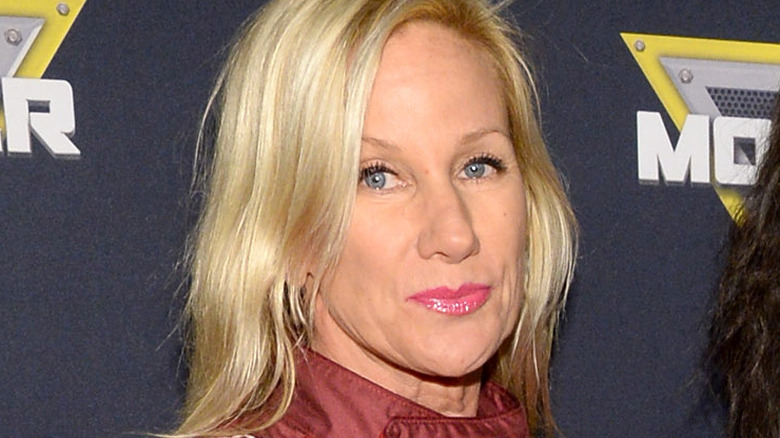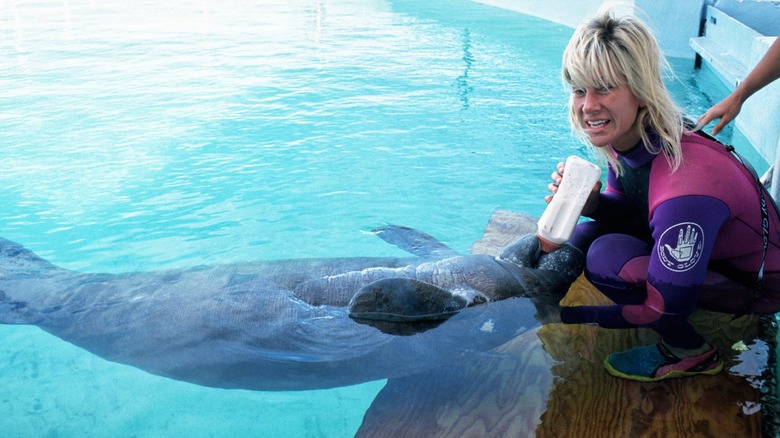Madusa Says She Was Good To Wrestling, But Wrestling Wasn't Good To Her
Madusa Miceli — known to WWE fans as Alundra Blayze from her mid-1990s stint as Women's Champion — has not been shy about discussing sensitive topics while promoting the March 28 release of her memoir, "The Woman Who Would Be King: The Madusa Story." In December, for example, she went over how, without naming names, the wrestling business was, in her words, "very Harvey Weinstein-ish" during her career. Now, appearing on "The Sessions with Renee Paquette", while not dealing with themes quite as dark, she went further into how the wrestling business did not treat her well.
"Believe me, I was jaded a long time in pro wrestling," she explained. "I was good to pro wrestling. Pro wrestling wasn't good to me. It was because of that. You had your June Byers, you had your [Fabulous] Moolahs, and your [Mae Youngs], that wonderful great start of women 60, 70 years ago. If it wasn't for those women, there wouldn't have been the next era, which was a little jump of your Wendi Richters, your Sherri Martels, your Jumping Bomb Angels, and your Glamour Girls. We had that whole wonderful thing when Wendi Richter was in the first WrestleMania. My God! Then you had a little bit of a stint on the second ... and then really, we didn't have a women's wrestling WrestleMania match until WrestleMania X, which was mine against Leilani Kai."
"Our social media back then was relying on people that wrote for the magazines," Madusa continued, explaining how most wrestling magazine interviews were fictional creations of male writers, depriving her and other women of their voices. The nature of the wrestling magazines during her career has made Madusa particularly grateful for social media and the recognition of her generation on sites like Twitter, as well as to WWE for spotlighting her as a legend from time to time.
Madusa: Talking about not having kids was the hardest part of her book
Madusa then shifted to the changes that came in the late '90s, where more women were being spotlighted, but generally in overtly sexualized and tokenized ways that did not appeal to her. "And kudos to the women who stuck it out during the 'Attitude Era,' because they didn't have another choice! You had to do what you had to do, it was their contract, but we have choices. You can say yes and you can say no." She added that if there were women who wanted to do that, she wasn't slighting them, but that there were a lot of women who loved wrestling who were thrown into the more overly sexualized situations when they didn't want to be.
Later, Paquette pivoted to how Madusa's book mentioned that "the one thing that had eluded you was motherhood." So naturally, Paquette, asked about that, with Madusa saying it was the hardest part of the book to write and that it will surprise readers. "Knowing what I was up against, I still went against the grain," she continued. "And I thought in a couple ways, that 'hey, I can always wait, I can do it later.' In my book, it explains all of that and the steps that I did. And the story, this hits home every time." She also spoke of "living vicariously" through the Bella Twins, but did not expand on if that was specific to their wrestling careers or extended to their retirements and settling down to have kids.

